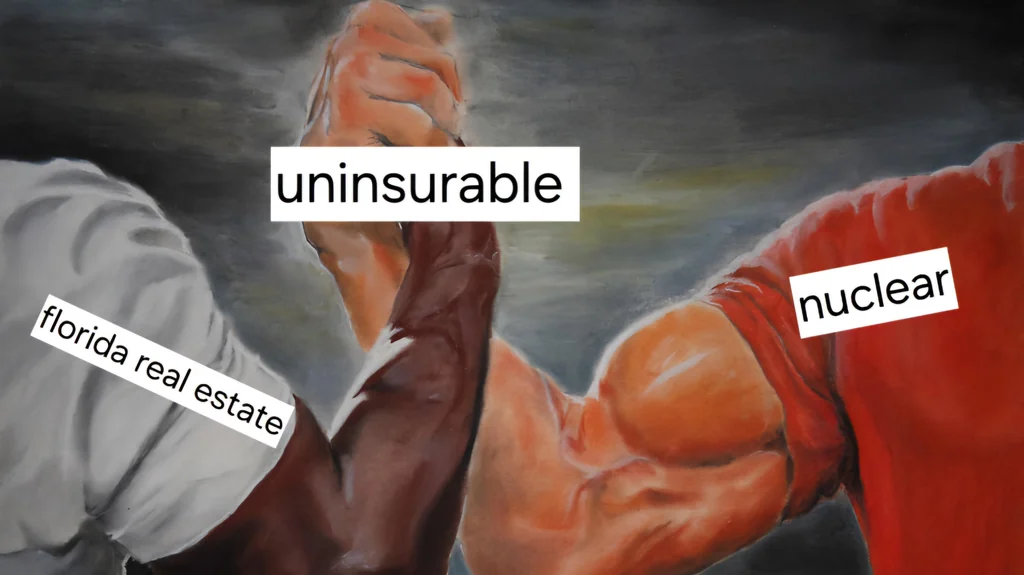Uninsurable - not just nuclear, but also unsinsurable literally
4 readers
4 users here now
Uninhabitable => Uninsurable


founded 4 months ago
MODERATORS
1
2
3
4
5
6
7
10
Climate-fueled insurance hikes are fueling delinquent mortgages, study finds
(www.motherjones.com)
8
9
19
Real estate values in Texas and Florida are being hit by violent weather as insurance costs spike
(www.businessinsider.com)